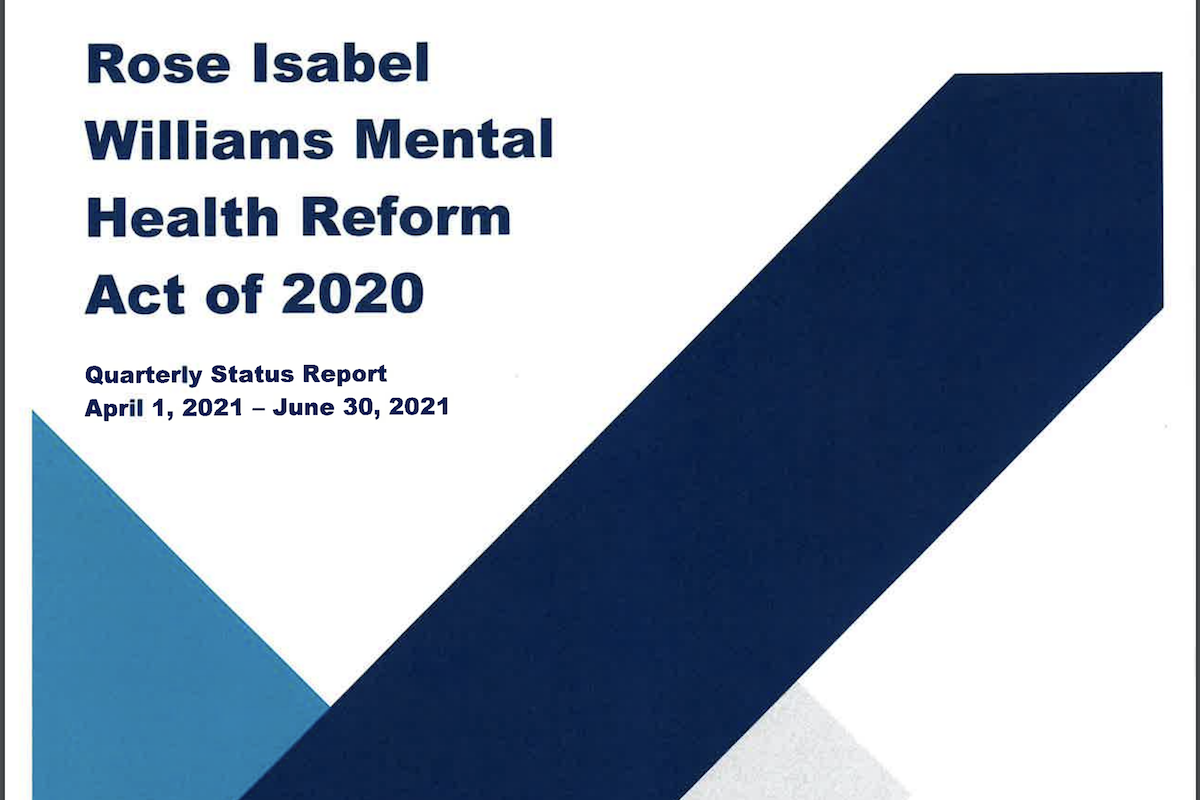The Office of Coordinator of Mental Health Accessibility (OCMHA) was created by the Rose Isabel Williams Mental Health Reform Act of 2020, which was passed last year by the legislature. Its purpose was to “reform the current Mississippi mental health delivery system so that necessary services, supports and operational structures for all its citizens with mental illness and/or alcohol and drug dependence and/or comorbidity, whether children, youth or adults, are accessible and delivered preferably in the communities where these citizens live.”
The Coordinator’s duties were outlined as follows (taken from the legislation, but abbreviated):
- To perform a comprehensive review of Mississippi’s mental health system
- To analyze and review the structure of the mental health system
- To review the adequacy and quality of the individualized supports and services provided to persons discharged from the state hospitals
- To review the quarterly financial statements and status reports of the individual community mental health centers
- To consult with the Special Master appointed in the United States of America v. the State of Mississippi, as well as a wide range of other stakeholders
- To determine where in any county, or geographic area within a county, the delivery or availability of mental health services are inadequate
- To determine whether each community mental health center has sufficient funds to provide the required mental health services
- To report on the status of the mental health system quarterly.
The legislation created the position of Coordinator of Mental Health Accessibility and authorized the coordinator to hire staff needed for the performance of his duties. On October 15, 2020, Bill Rosamond, JD was appointed to fill that position. Rosamond had previously served as the Special Assistant Attorney General assigned to the Department of Mental Health for the five years prior to his appointment as Coordinator.
Mr. Rosamond and the staff he has hired for his team have now submitted the first of the quarterly status reports required by the legislation, covering the period from April 1, 2021, to June 30, 2021. The OCMHA team consists of Steven Allen, a former Deputy Executive Director of the Department of Mental Health with over 30 years of experience in public mental health service systems, Dr. Jerri Avery, a licensed professional counselor with more than 27 years of experience at DMH and Region 15 Community Mental Health Center, and Jerry Mayo, a former executive director of Region 12 Community Mental Health Center with 28 years of experience.
In their first quarterly report, the OCMHA team outlines their plans for conducting a “qualitative and quantitative evaluation for the purposes of improving the mental health service system” by using a framework based on the Canadian Health System General Rating System and modified specifically for mental health services. While they state that they are still finalizing their strategies for evaluation, along with reviews of financial reports, PEER reports and other relevant documents, they also intend to meet with other stakeholders, “including Community Mental Health Centers (CMHC) staff, family members, individuals served, and members of advocacy organizations.” They have also begun their initial assessment of the behavioral health system in the state, through the use of on-site interviews and tours.
The report provides some historical background on the four entities that the Mississippi Peer Report #584 identified as responsible for the public mental health system in Mississippi: the Community Mental Health Centers, the Board of Mental Health, the Department of Mental Health, and certified private mental health organizations. The report also adds two other components, the Division of Medicaid and advocacy organizations that offer a voice to persons and families who utilize behavioral health services.
The difference in the size of the Community Mental Health Center regions, in terms of persons served and also in terms of their physical size is noted, and the report also outlines some of the challenges facing Community Mental Health Centers, especially how they are funded, and the diversity in county funding contributions to the CMHCs. The makeup and purpose of both the Board of Mental Health and the Department of Mental Health are summarized as well.
The report concludes by stating that the OCMHA team intends to do more “detailed analyses of the services and supports most critical for addressing acute needs within the community”, so that it may identify Community Mental Health Center regions that may be financially vulnerable, and will work with them to identify strengths, weaknesses, opportunities and threats. The OCMHA team will also be finalizing their framework for assessment and developing a quality measuring tool questionnaire.
Families as Allies appreciates the thoughtful foundation that this report establishes and the OCMHA team’s emphasis on meaningful outcome measures. We also value the team asking for input from our organization and support the team in its efforts to seek ongoing and sustained input from people receiving services and their families.
We understand that all team members having work experience in the mental health system provides a certain level of subject matter expertise. At the same time, it could influence the team’s objectivity. Broad and consistent stakeholder feedback loops and a continued emphasis on objective outcome measures provide some protection from bias, but we encourage the team to remain mindful of the importance of objectivity and to be aware of influences that could affect it.
For more background on the Rose Isabel Williams Mental Health Reform Act of 2020, see our blog post from last October.

